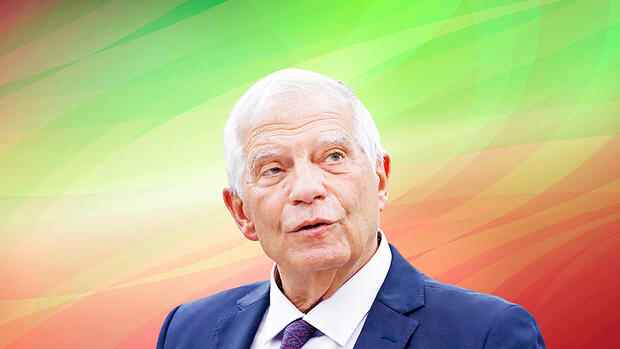It remains to be seen how the Ukrainian counter-offensive will play out, but it is already clear that the strategic balance is shifting.
In the meantime, the European Union has pulled out all the stops to deal with the energy crisis. We have filled our gas storage facilities to over 80 percent – well ahead of the target date of early November – and have agreed on clear targets for reducing gas consumption during the winter.
To help consumers and businesses deal with price spikes, we are pushing forward proposals like a special tax on energy companies that have made excessive profits.
Additionally, in coordination with the G7 and other like-minded partners, we are discussing plans to cap the price of Russian oil exports. And we are helping our partners in the Global South deal with the fallout from Russia’s brutal aggression and cynical weaponization of energy and food.
In short: the overall strategy works. We must continue to support Ukraine, pressure Russia with sanctions and help our global partners in a spirit of solidarity.
Those who question the effectiveness of sanctions are on increasingly shaky ground. In general, sanctions have a dual function: they are intended to set a signal and exercise coercion.
The signal expresses rejection of a state’s behavior – in this case, including violations of international law and wanton attacks on civilians and civilian infrastructure.
And although we are not at war with Russia, the coercion is aimed at forcing Russia to change its behavior and depriving it of the economic and technological means of aggression.
The EU has taken the historic decision to end dependence on Russian energy, sending a clear signal. The Kremlin has breached its contracts by drastically reducing gas export volumes, sending markets into turmoil.
The ability to carry out such blackmail may seem like a Russian strength, but it is ultimately a losing strategy.
Contrary to popular belief, it is not easy for Russia to find a sustainable substitute for the European market, as much of its gas export infrastructure (pipelines and LNG terminals) is geared towards Europe. Diverting gas flows to countries like China will take years and cost billions.
Economic dependence has become a weapon
It is true that Russia has benefited from recent gas price hikes. But that doesn’t mean the sanctions have failed. Rather, we’ll have to wait and see the full impact of the decision to cut Europe’s energy imports from Russia.
So far, Europe has only stopped imports of Russian coal and reduced imports of Russian oil. And here, too, the effects are already being felt.
Russia’s coal exports recently fell to their lowest level since the invasion began, as the Kremlin failed to find other buyers.
Oil prices have also fallen since the EU announced it would cut Russian oil imports by 90 percent by the end of 2022. And the Kremlin’s revenues will be cut even further if it cuts gas supplies to Europe even more.
As the German foreign minister has noted, Europe may have paid a low price for Russian gas in the past, but that was because we paid with our security.
>>Read here: Von der Leyen: “Our proposal will bring more than 140 billion euros”
Russia attacked Ukraine because it was convinced the EU would be too divided and too dependent on Russian energy to act. But Russian President Vladimir Putin has miscalculated here too.
By reducing its dependence on Russian energy, Europe is freeing itself from the belief that economic integration automatically reduces political tensions. That might have made sense 40 years ago, but now that economic interdependence has become a weapon, it certainly doesn’t.
But the right answer is not to turn inward. We still need an open economy, but we must not allow interdependence without resilience and diversification.
We must consider the political identities of those with whom we trade and interact. Otherwise we will fall into the same trap that Putin has been setting for 20 years.
According to an internal report, the sanctions are causing significant damage to Russia
The sanctions have also been shown to have had a stringent effect. Losing access to Western technology has already impacted the Russian military, whose tanks, planes, telecommunications systems and precision weapons also rely on imported components.
In addition, a leaked internal report by the Russian government warns of continued damage to the Russian economy from import restrictions. In agriculture, 99 percent of poultry production depends on imported raw materials.
In aviation, 95 percent of passengers in Russia travel on foreign-made aircraft, and now Russia’s commercial aircraft fleet is shrinking due to a lack of spare parts.
In the pharmaceutical industry, 80 percent of domestic production is dependent on imported raw materials. Finally, in communications and information technology, Russia could run out of SIM cards by 2025, and other areas of the telecoms sector will also be set back many years.
As a reminder, this gloomy assessment comes from official internal Russian sources.
Time and history are on the side of Ukrainians
Will sanctions alone be enough to defeat the attacker? No, but that is why we are also providing massive economic and military support to Ukraine and are working on an EU military training mission to further strengthen the Ukrainian armed forces.
The war isn’t over yet, and Putin’s regime still has a few cards in hand. But with the current Western strategy, it will be virtually impossible for the Kremlin to turn the tide.
Time and history are on the side of the Ukrainians – as long as we stick to our strategy.
The author:
Josep Borrell is the EU High Representative for Foreign Affairs and Security Policy and Vice-President of the European Commission.
More: Europe is facing a difficult winter, Russia permanent infirmity
